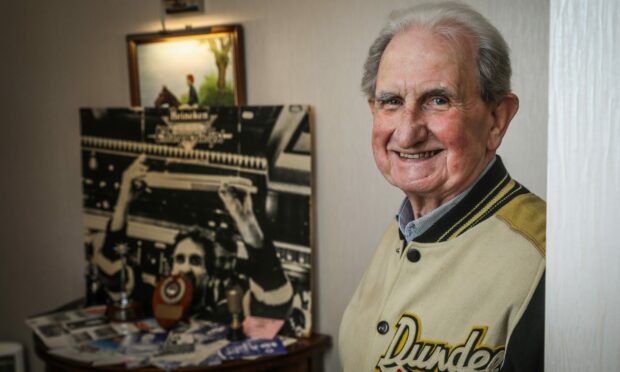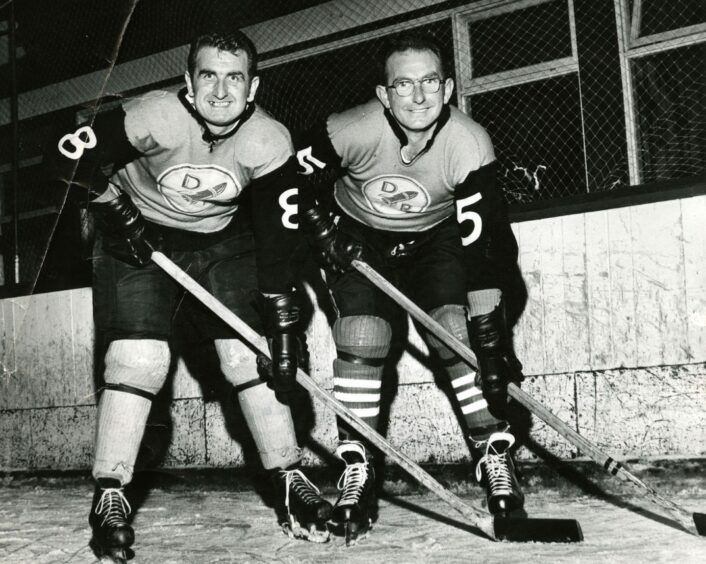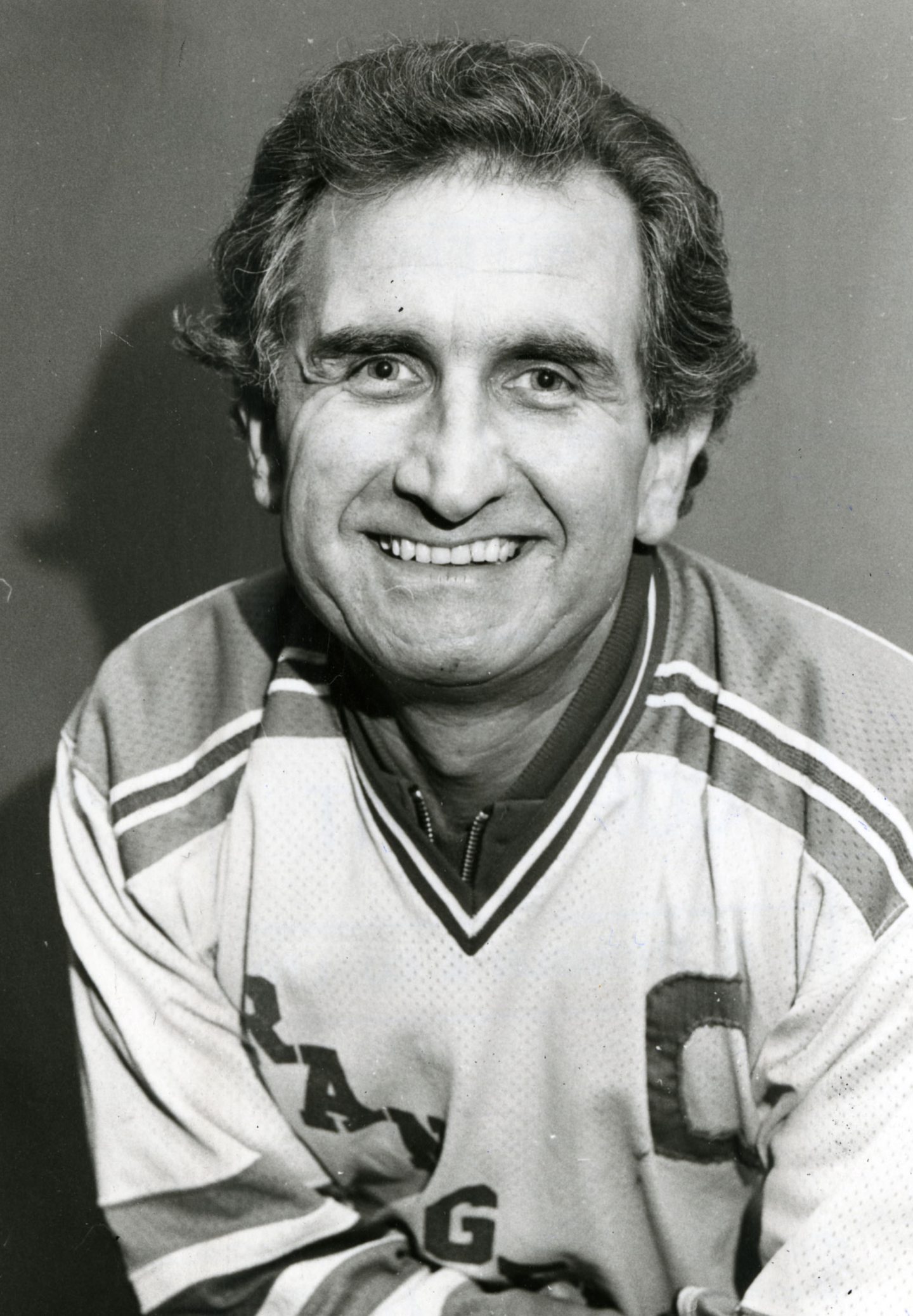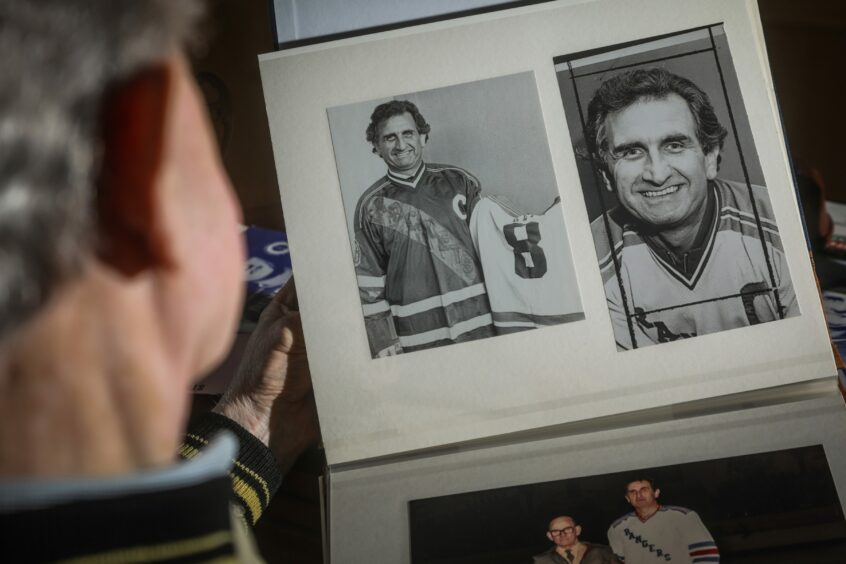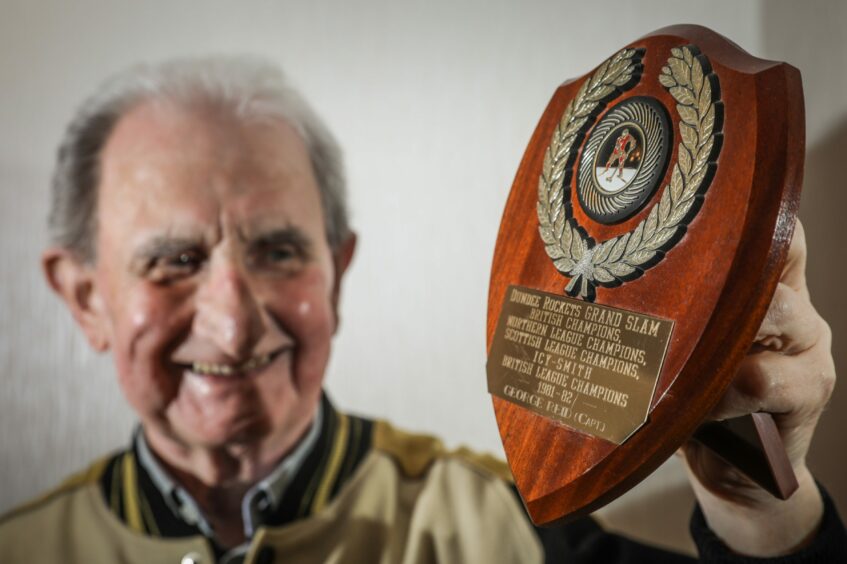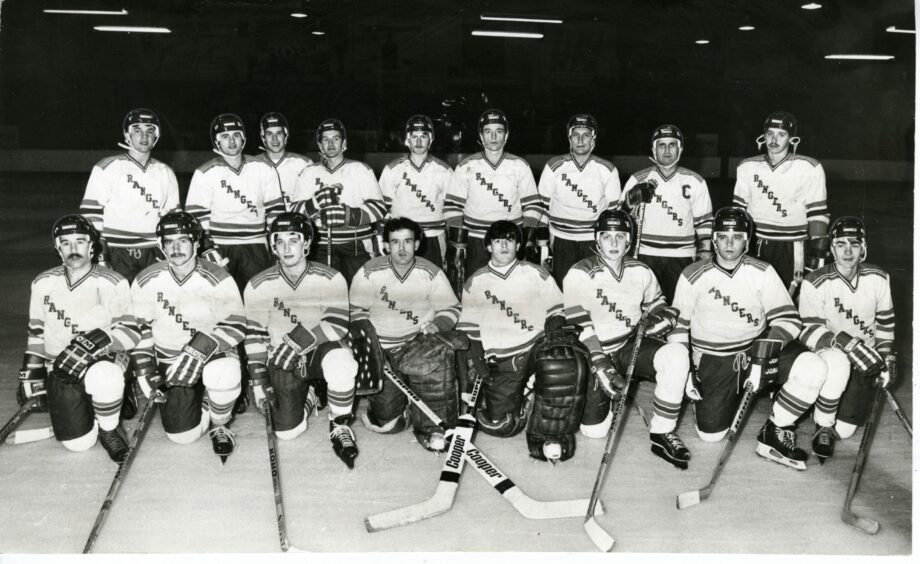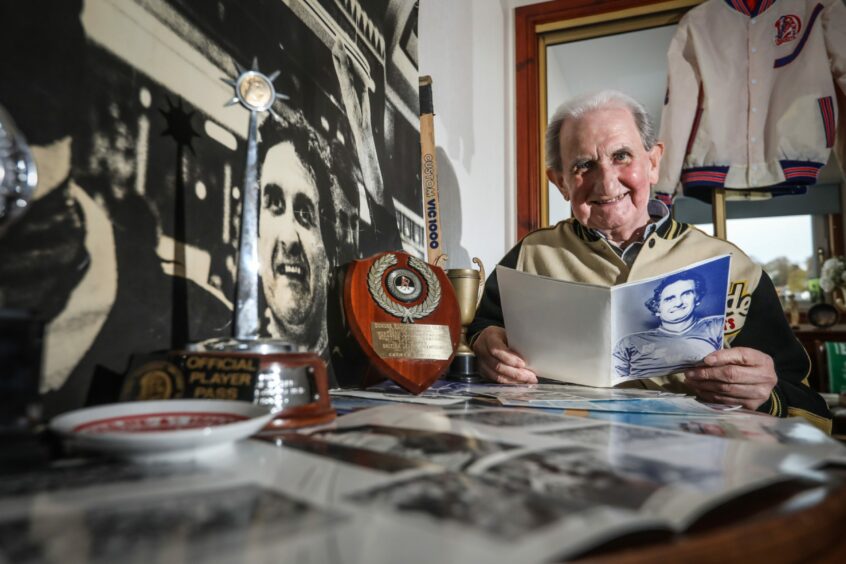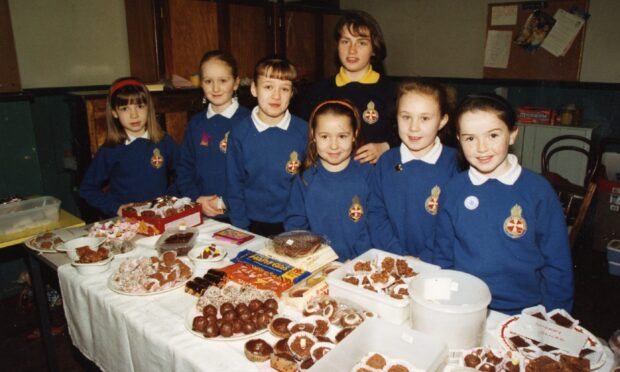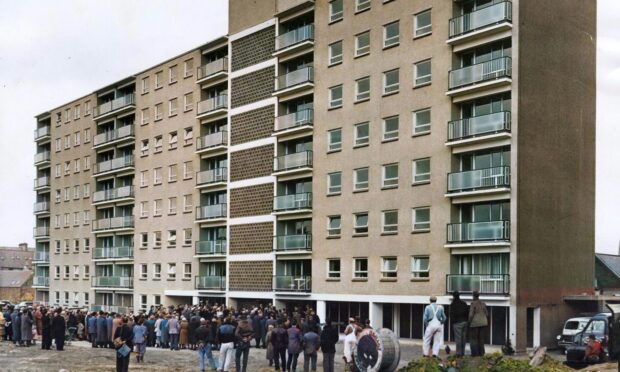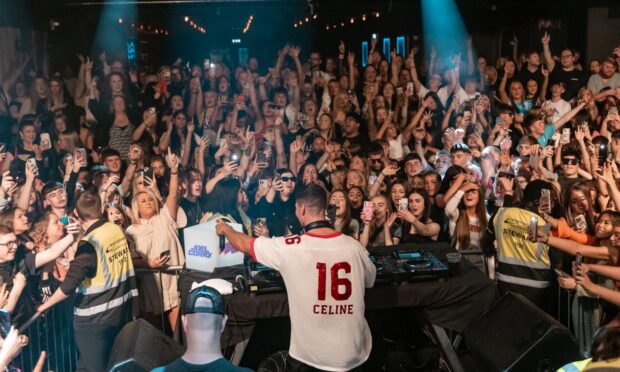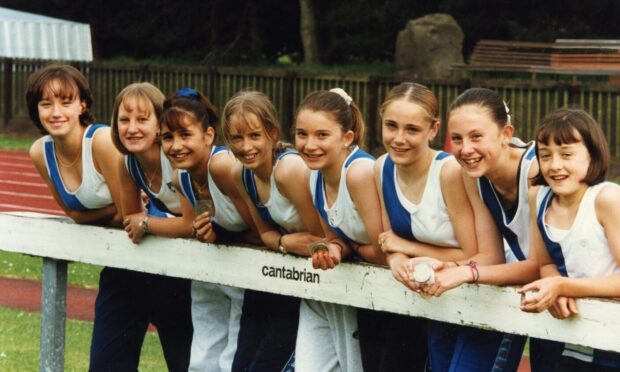George Reid led the all-conquering Dundee Rockets to three Grand Slams in the 1980s and never earned a penny for his outstanding ice hockey career.
George was captain of the Rockets during the sport’s glory years, in the Thatcher era, when BBC Grandstand and ITV’s World of Sport covered the games.
He combined his hockey career with his full-time job with the public works department.
The Rockets at the time were the biggest crowd-pullers in British ice hockey history and games at the Kingsway rink in the 1980s would attract 2,000 fans.
George first went to see the Dundee Tigers at Kingsway in 1952 and was hooked.
“My brother Malcolm and I were among a bunch of lads who used to play hockey whenever the water froze,” said George.
“In the early 1960s Malcolm used to drive my father’s pig lorry and we would travel around Dundee searching for frozen ponds to practice on.”
The players used to stump up a few shillings every time they met, which helped to raise funds to form a team in the early ’60s that would become the Dundee Rockets.
Trucking along… and breaking down
With no home ice, the players would travel to Edinburgh, Kirkcaldy and Perth to practice.
They played in old jerseys and trousers.
“We managed to get ice time in Kirkcaldy on Sunday morning at 6am, which was 60 miles each way before the Tay Road Bridge was built,” said George.
“We arranged a match at Durham with a 2pm face-off.
“We set out early but one of the cars broke down in Perth.”
The squad didn’t arrive at the rink until 7pm and the 2,000-strong crowd was gone.
“We struggled to stand in the right place for the face-off!” said George.
“The referee was angry but we got through the game with the help of some Durham players joining our side.
“We played all our games away from home.
“We were going to call ourselves the Dundee Tigers but the name was already registered, despite the original team being disbanded in 1955.
“We decided to call ourselves the Dundee Rockets.”
The rest is history.
Sometimes we’d be having a team-talk and someone would come in and use the toilet!”
George Reid
“The board at the Kingsway Rink would not give us ice time,” said George.
“Eventually, in 1969, we were offered ice time for a £60 cost but they insisted on a guarantor and my parents obliged!”
They played the first game on home ice in Dundee on January 12 1969, against Murrayfield Raiders, with the rink bursting at the seams.
“We had to sell the tickets ourselves,” said George.
“Our first dressing room was the gents’ toilet and we had to install a shower!
“Sometimes we’d be having a team-talk and someone would come in and use the toilet!”
A crowd of 3,000 watched a 5-2 win.
“After the board saw the attendance they raised the price of ice time,” said George.
“Now it was £60 plus sixpence for every ticket sold.”
Soon after returning to Kingsway, the club recruited Mike Mazur, Sammy MacDonald and Jimmy Spence.
Mazur became one of George’s favourite players for his never-say-die attitude.
The Rockets won the Intermediate League in 1968-69, Northern League in 72-73, and the Spring Cup in 73-74, plus a host of local competitions.
One of his most memorable games was the last game at the old Ayr rink on April 16 1972 when the Rockets beat Bruins 6-5.
“With under a minute to go we were 5-4 down and coach Ian Forbes took off goaltender Mike Ward and I went on as an extra forward,” said George.
“My job was to win the face-off in the Ayr end and get the puck to our spare man, Jimmy Spence, while our other players tied up their direct opponents.
“It worked a treat and Jimmy banged in the equaliser but our coach wasn’t satisfied with a draw.
“With 16 seconds left and each side with three men in the cooler for interference, we repeated the no-keeper act.
“Jimmy’s winning shot was so well struck that it went clean through the net!
“Bruins didn’t know what had hit them!”
Personal milestone
The period also brought George a personal milestone when the Rockets beat Paisley Mohawks 14-5 at Dundee in February 1974.
George scored nine goals to equal the league record.
A week later Derek Reilly of Murrayfield Racers equalled the record!
The ice rink was the arena in which heroes and villains were made and there was a particularly bloody battle against Durham on April 1 1974.
“Both teams finished up having a massive fight on the ice,” said George.
“When the game was abandoned there was one bright spot.
“With petrol prices due to go up by 5p a gallon that day, most of the garages were closed and the Durham players who came by car needed fuel.
“My brother Malcolm opened the petrol station that was owned by my parents.
I was a true amateur and was never paid for a single game.” George Reid
“They got enough fuel to go home and all the fighting was now forgotten!”
Then Dundee found themselves out in the cold again, losing their league place and home ice in 1975, following redevelopment work at the rink.
The urge to play went for George for a while but Tom Stewart always envisaged that senior hockey would return and became owner of the Rockets.
Tom coaxed George back after four years out of the game and took the Rockets back to compete in the top level of ice hockey at the start of 1981-82 season.
The team was made up of British players with an additional three import players who were on full-time contracts.
Unimaginable success
The Rockets won the Scottish National League in 1981-82 and the British Championship in 1982.
From 1983 to 1987 the Rockets played in the British Hockey League Premier Division, winning the league in 1982-83 and 1983-84.
The Rockets won the Heineken Championship in 1983 and 1984, and the Autumn Cup in 1983-84.
“I made a lot of great friends during my time with the Rockets,” said George.
“I was a true amateur and was never paid for a single game.
“I was proud to be captain during these years when we won three in a row.
“Collecting these trophies for the team was a very proud moment and the Rockets being afforded a civic reception by the council was another highlight.
“We also played in the European Cup, which was a dream come true, against the Danish champions, Rodovre SIK, and CS Megeve from France.”
George never played for Scotland, although he would have done but for a freak accident.
“In October 1970, I was chosen against England in the first-ever international at Dundee but two days before the match, at a Rockets practice session, I was knocked unconscious when I skated into a post,” he said.
“I spent that weekend in hospital with concussion.”
George suffered a few serious injuries during his career, which included a fractured cheekbone in 1970 and 14 stitches in a chin wound at Nottingham in 1982.
End of an era
He was still at the top of his game when he hung up his skates.
“After the Wembley finals, back in 1984, I was 42,” he said.
“I thought it was time to leave it to the younger players.”
Although he gave up playing senior hockey, George continued to keep training and became a coach with the Rockets before the team’s demise in 1987.
A second Dundee Tigers team was founded before being dropped from the top flight in 1989 following the closure of the Dundee rink.
The ‘old rink’ was demolished to make way for a Tesco in 1990.
The sport returned following the opening of Dundee Ice Arena at Camperdown Leisure Park in 2000 at a cost of £6.6 million.
“When the new ice rink was built we organised an old timers’ recreation team with many from the 1960s and we got ice time on Friday lunchtime,” he said.
“I played with them until Covid happened but hopefully we’ll get back on the ice soon.”
More like this:
